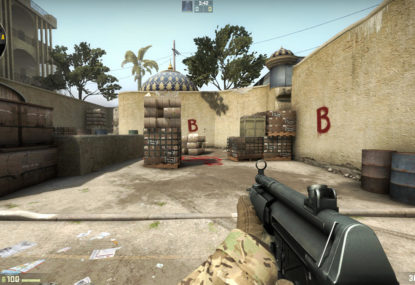2022 Trivia: The Roar's jam-packed Christmas Day sports quiz!
The jam-packed month-by-month quiz full of 2022 sports trivia!

eSports is an industry in its infancy, largely purveyed, governed and consumed by those who have no idea what they are doing when it comes to big business.
It’s a trailblazing industry, and like any other company of its kind in the digital age, the legislation, governance and control has largely been left as a side issue as the growth trajectory continues to skyrocket.
Like a blindfolded man walking in a forest, the people in the eSports industry are trying to get to their trusted destination but have absolutely no idea of whether they’re going about it in the right way.
Professional sport is a complicated beast. It’s complicated by the fact that athletes are paid large sums of money and are heroised by millions of viewers all around the world. It is one of the few true live experiences is left, which is great for rights holders, fantastic for athletes and continues to be a boon for fans.
When sport moved from being amateur to professional, and when stacks of money started changing hands, that’s when it all became complicated. The response was swift – ethics commissions were established, integrity units formed, governing bodies rose from the ashes of the loose committees that formerly made the big calls.
That didn’t come straight away. It’s taken the best part of 20 years for World Rugby to cobble together anything close to what you’d consider to be a unified strategy after the game was professionalised.
With eSports less than a decade into professional competition, at least outside of South Korea, the exploitation of its athletes is up there with what happened to Mohammad Amir five years ago in cricket.
Two of South Korea’s finest ever Starcraft and Starcraft 2 players, codenamed Savior and Life, have been banned from competing in the sport. One is currently serving a jail term for match-fixing in the game’s biggest team leagues, and the other copped 120 hours community service and two years probation (on a 12 month suspended jail sentence) for fixing the results of televised games.
This is relatively well known by those in the eSports scene. Life’s fall from grace, in particular, has had a deep effect on Starcraft 2 – he was one of the preeminent players of the game at the time of his sentencing.
There’s plenty of information about the details of the scandal here, but the thrust of it is this guy was one of the best in the world when he fixed games.
He was also 18.
Savior is now 28, living his gaming life in disgrace, but was 22 at the time of his offences. In gaming terms, he was past his peak.
More recently, Counter Strike has been in the news for, you guessed it, more shady betting practices. This time, the level of corruption runs very deep, with the owners of CSGO betting websites, also some of the most popular content producers on the web, setting up what every other industry with an ounce of professional development would see as a legal and ethical travesty. This video is a great summary of what happened, but probably doesn’t go far enough in condemning the perpetrators.
And this isn’t the half of it…
The stories are plentiful of players (and others) being ripped off by any number of bodies including but not limited to:
– Their team
– A tournament
– A distribution and broadcasting platform
– A sponsor
Maybe companies see it as an easy way to reach a mass audience for very little money. Maybe it’s just a case of an industry in its infancy going through growing pains, having to rely on less mainstream companies with less mainstream ethical compasses for revenue.
Maybe it’s just a case of eSports doesn’t pay.
But tell that to the team that wins The International and pockets over a million bucks in prizemoney.
The fact is, whether you like it or not, eSports is here. What’s not here is an adequate governing body to deal with the issues that continue to plague those who want to earn a living from it.
It’s encouraging to see countries like the UK launching eSports governing bodies. South Korean powerhouse KESPA is an old and powerful organisation too.
There remains a huge amount of individuals operating on the fringe, and the problem with all of it is regulation is just… absent. No rules. No guidelines. Just individuals doing their thing.
And the longer that remains the case, the longer it will hold eSports back.